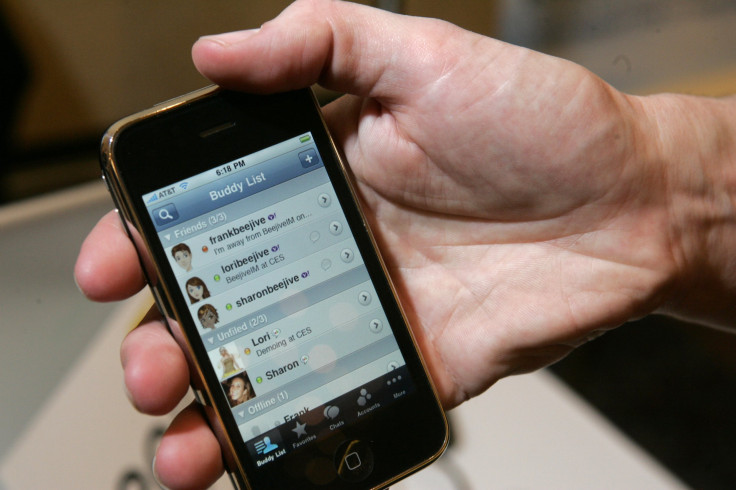Take A ‘Moment’ To Consider Your Smartphone Addiction

People use their smartphones for a plethora of functions -- checking emails, surfing the Web, accessing various applications and even making phone calls -- but how much is too much? Turns out, there's an app that can tell you (provided you use an iPhone), and it's called "Moment."
Developer Kevin Holesh said his own excessive smartphone use sparked the idea for the app.
"About six months ago, I realized I had a serious problem," he wrote in a blog post. "I was addicted to my phone, exactly like I predicted when I first waded into these always-connected waters. I felt naked if my phone wasn’t weighing down my right pocket."
Kleiner Perkins Caufield & Byers recently released its annual Internet Trends report, which said that smartphone users check their devices 150 times a day on average. But "Moment" developer Holesh didn't need to measure the extent of his smartphone use to know he needed to curb his habits.
In a blog post, Holesh wrote about his and his fiancée’s transformation from a couple who were new to cohabitation to two zombies entranced by their favorite mobile apps: his, Twitter, and hers, Instagram.
After testing "Moment" for several months, Holesh said he brought his phone use down from 75 minutes a day to 40 minutes. Whereas his iPhone used to eat into his time with his fiancée and his pets, he says "Moment" has helped him find a balance between his digital life and his real one.
"Moment" has been available on the iOS App store since last Thursday, and while Holesh didn't reveal the how many public downloads the app has garnered so far, he did indicate that it was downloaded 1,000 times more than he expected. Currently, there is no release timeline for the upcoming "Moment" app for Android.
The apparent success of "Moment" suggests that many people may feel too dependent on their mobile devices, but Holesh believes that nobody is beyond help in controlling their smartphone use.
“No one is ever too far gone," he said. "'Moment' will certainly help push them in the right direction, but it's not going to force anyone to make a change they don't want to make.”
Many smartphone users have shared experiences similar to Holesh's. In recent years, words have been invented to address the increasing prevalence of smartphone dependency, which is not yet considered an official disorder but is the subject of several studies and books.
Larry Rosen, a psychology professor at California State University, Dominguez Hills, coined the term “Phantom Pocket Vibration Syndrome” to describe how many smartphone users feel vibrations that aren’t there, which leads them to check their devices excessively.
"Interacting with our technology can make us display signs and symptoms of everything ranging from depression to mania to narcissism to voyeurism -- you name it," Rosen said in his blog "Rewired: The Psychology of Technology."
To make "Moment" most effective, Holesh designed the app to run as a background function. Users can set daily limits for phone use, and the app will alert them if they are nearing their limit.
However, he noted that his ultimate success with "Moment" came from his own willingness to change.
“That type of real change in your habits has to come from inside yourself, not an app on the thing you're addicted to in the first place,” he said.
© Copyright IBTimes 2025. All rights reserved.




















